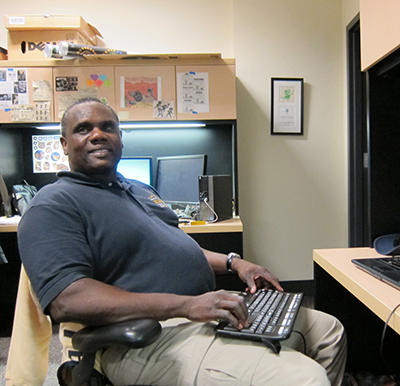Vincent

My mother told me that the encyclopedias that still sit on the shelves in their house in my hometown were purchased because of my constant questions about how everything worked.
Even playing sports, I always took the analytical route towards getting something accomplished, instead of just trying to play for fun. I’m sure that’s what started my journey into a STEM-related major and career. I truly believe this is how I came to study several different STEM fields, as none of them led me to answers. Rather, more intriguing and complex questions have unfolded along the way.
I am currently a PhD student in human centered computing, which is best defined as the intersection between humans and computers. I got to this point in my education and career by way of two different engineering undergraduate degrees, a third undergraduate degree in psychology with an emphasis in engineering psychology, and a master’s degree in human computer interaction. My various degrees are all relevant in the research being done with mobile and ubiquitous computing. I’ve also learned, unexpectedly, that my STEM education has been more useful in my day-to-day life than it has in my work career.
I diagnosed my own eye disease as a result of diligence on my part and not accepting the answer of, “there is nothing wrong with your eyes that we can see.” Most importantly, after a diagnosis of retinitis pigmentosa was confirmed, I used my technical background to start creating modifications that would make me an efficient and productive worker. My engineering background, which relied heavily on mathematics, science, and reasoning power, led me to design my own assistive technology devices and better understand those that already existed. Because of these interests, I ventured into rehabilitation engineering. After many years of work and being recruited to work as a rehabilitation research engineer at a lab, I realized that I wanted to do research for the rest of my life.
In order to achieve that goal, I had to return to school to garner the degrees and knowledge to become a principal investigator. I added a degree in psychology to enhance my understanding of human behavior and realized that the majority of my work had been in dealing directly with computers and humans. That is how my final phase of education came to focus on human computer Interaction and will culminate with a PhD in human centered computing. The next step in my STEM journey is completing my PhD and diving into the research with unbridled enthusiasm.